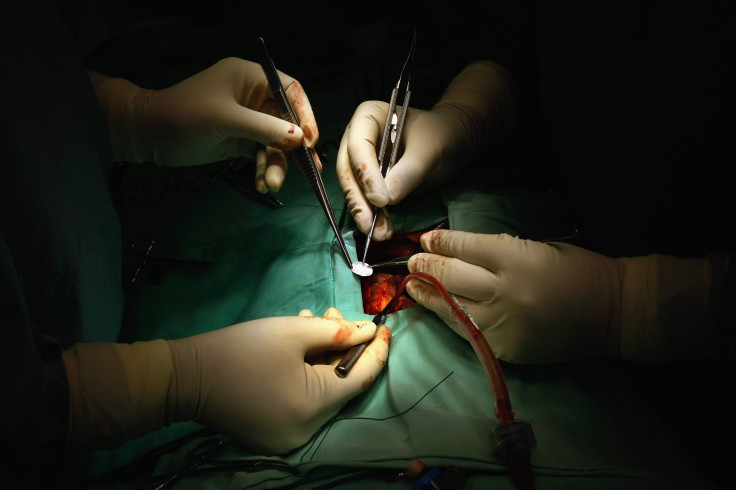What Is Ectopia Cordis? Baby Born With Heart Outside Her Body

Ectopia cordis is a rare deformity in which a person's heart is located either partially or completely outside the chest cavity. Normally, a person’s heart is in the chest cavity in between the lungs but in ectopia cordis, a genetic defect, the chest wall doesn’t form properly, due to which the heart protrudes outside the cavity.
The ectopic heart can be found along a spectrum of anatomical locations that may include the neck, chest, or abdomen. In most cases, the heart protrudes outside the chest through a split breast bone. A baby born with this birth disorder is usually in a critical condition and rarely survives for more than a few hours or days.
The term ectopia cordis is derived from Latin where the word ectopic means “outside or out of place” and cordis means “heart,” according to the Medical News Today.
The exact reason as to why ectopia cordis occurs is not clear, but according to Health Line it happens because a child’s breastbone (sternum) does not develop normally. The chest, which should be closed, remains open and this happens at a very early stage during embryonic development.
Ectopia cordis involves lots of complications with the structure of a newborn baby’s heart, which can lead to other problems like:
- Difficulty in breathing
- Low blood pressure
- Poor circulation of blood
- Low blood pH
- Electrolyte imbalance (dyselectrolytemia)
Some facts on ectopia cordis:
- Ectopia cordis is found in 5-8 babies in a million births.
- It is more common among male infants.
Infants born with this rare defect need intensive care, which may include incubation and use of a respirator. Usually sterile dressings are used to cover the heart and antibiotics are given to avoid any kind of infection. The defect is treated with multiple surgeries that involve repositioning of the heart and providing adequate coverage of the chest wall. Sometimes surgeries are also done to repair other heart or abdominal wall defects.
Baby Vanellope Hope of Nottingham, United Kingdom, was born with ectopia cordis defect and is now three weeks old. She was diagnosed with this deformity during a scan at nine weeks into pregnancy and the doctors mentioned her survival was next to impossible.
A team of 50 doctors, nurses and other helpers together put in efforts to deliver her safely. Since her birth, the infant underwent three surgeries to relocate her heart inside her body and is now recovering slowly. Vanellope is believed to be the first case in the U.K. to survive this rare condition. The first surgery was done within an hour of her birth.
According to a report in the BBC, consultant pediatric cardiologist, Frances Bu'Lock, said, “Before she was born things looked very bleak but now they are quite a lot better – Vanellope is doing really well and has proved very resilient."
He added, “In the future we may be able to put in some internal bony protection for her heart – perhaps using 3D printing or something organic that would grow with her.”
Audrina Cardenas, born in Texas in October 2012, was also diagnosed with the same deformity. Cardenas underwent surgery to place her heart back inside her chest. She was sent home after three months and was later given a protective plastic shield to cover her chest.
© Copyright IBTimes 2024. All rights reserved.











